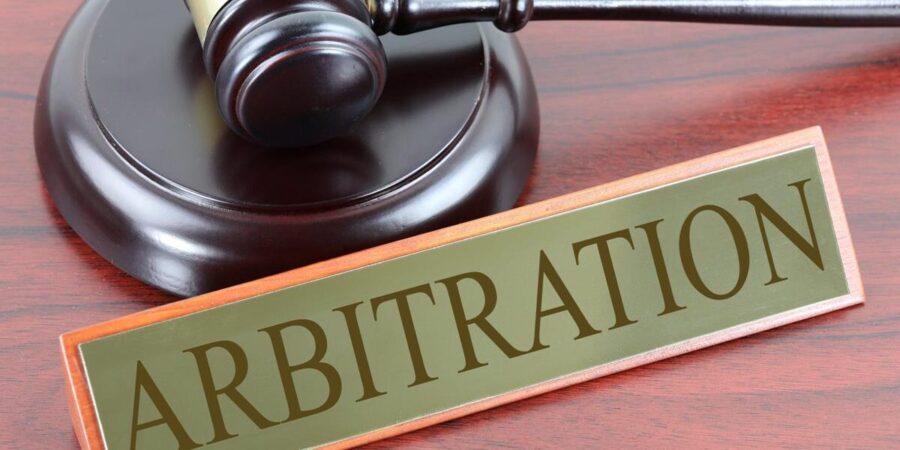By Anita Otieno
a) Background
The Covid-19 pandemic has had its effects on the justice system as other fields in the country. With partial closure of courts in Kenya, it is imperative that other forms of dispute resolution, other than litigation, be considered. Alternative dispute resolution mechanisms have been employed already, to address certain matters such as labour relations.
Beyond the need to adjust owing to the effects of Covid-19, Kenya has experienced an increase in commercial activities that have shown arbitration to be the most preferred mechanism for resolving commercial disputes. This write-up will provide a brief overview of arbitration in Kenya, as an alternative dispute resolution mechanism.
b) Introduction
Arbitration is governed by the Constitution of Kenya, the Arbitration Act and the Nairobi Centre for International Arbitration Act. The laws govern proceedings and enforcement of both domestic and international awards.
The advantages of arbitration include:
- Confidentiality. Arbitration proceedings are not public and the parties remain anonymous
- Enforcement of arbitral awards is more efficient and certain than enforcing judgments.
- Flexibility in terms of procedure, as parties are free to decide on which procedure they will apply.
- Arbitral awards have more finality as there are limited grounds for challenges and appeals.
- Relationship between parties is maintained as most outcomes are win-win.
The disadvantages of arbitration include:
- Arbitral proceedings may take time from commencement to final award
- The cost of arbitration is often higher than that of litigation
- The limited grounds for challenges and appeals coupled with the confidential nature of the process may create a risk of injustice.
c) Arbitrability of Disputes
Arbitrability refers to whether or not an arbitration tribunal has the authority to rule on a given dispute.
There is no provision in the Arbitration Act (the Act) that expressly prohibits any dispute from being arbitrated. However, there is a general presumption that arbitration is not the appropriate forum for addressing criminal disputes. Criminal matters fall outside the scope of an arbitration tribunal as they are considered to be matters of public policy.
For an arbitrator to have authority (jurisdiction) to preside over a matter, the following must apply:
- There must be a binding agreement to arbitrate.
- There must be a dispute that the parties had consented to arbitrate.
- The arbitrator must have been validly appointed.
d) Arbitration agreements
An arbitration agreement has to be valid under the law for it to be enforceable. The principal requirements for an arbitration agreement are set out in the Act. The Agreement has to be written and signed by the parties to it. It can be contained in a clause within the contract or in a separate agreement.
The doctrine of separability applies in arbitration agreements. Arbitration agreements are treated as separate from the underlying contract and survives the contract’s termination.
e) Arbitration Procedure
Once it is established that there is a dispute, the parties agree to a procedure of appointing an arbitrator, based on their agreement. The parties may also agree on the procedure for removal of an arbitrator. Each party is free to challenge the appointment or removal of an arbitrator before the tribunal or at the High Court.
An arbitrator ought to be independent and impartial. Commercial disputes may be specific to a certain field of business; hence it is important that the arbitrator be qualified in the subject-matter of the dispute.
A party to a matter may challenge jurisdiction of an arbitration tribunal before submitting its statement of defence (at the initial stage of the hearing). An aggrieved party may also raise an objection where the tribunal is acting beyond its scope. If the party is not satisfied with the tribunal’s ruling on preliminary objections, the party may apply to the High Court where a final decision will be pronounced.
The Act does not define what type of remedies the tribunal can prescribe to the winning party. Therefore, there is no limit on what remedy the tribunal can grant. The reliefs may however be limited to those sought by the parties.
f) Courts and arbitration
A court will not intervene in matters governed by the Arbitration Act on its own initiative. However, court intervention is allowed when the tribunal or the parties seek intervention to settle certain matters such as to determine questions of law or give interim orders of protection during arbitration among others.
g) Appeals
Domestic arbitration proceedings and awards can be appealed or challenged in the local courts (High Court) subject to the agreement between the parties. The decision of the Court may be appealed to the Court of Appeal.
For international proceedings, the parties may only set aside the proceedings or the award.
The Act provides for grounds for appealing or challenging arbitral proceedings or award. The parties may agree to exclude any basis of challenge against the arbitral award, in writing and in consideration of the public policy.
h) Arbitration institutions in Kenya
Commonly used institutions in Kenya to solve disputes using arbitration include:
- The Chartered Institute of Arbitrators (CIArb) (ciarbkenya.org/)
- The Nairobi Centre for International Arbitration (NCIA) (ncia.or.ke/)
- the Strathmore Dispute Resolution Centre’s (SDRC) (strathmore.edu/sdrc)
International companies may however decide on a different location for arbitration then seek enforcement of arbitral awards in Kenya.

